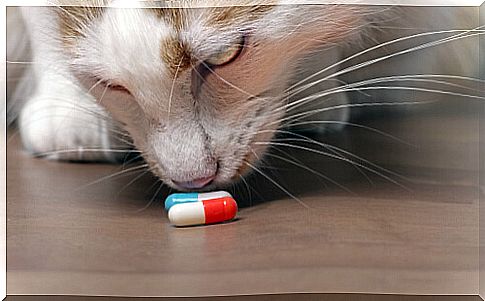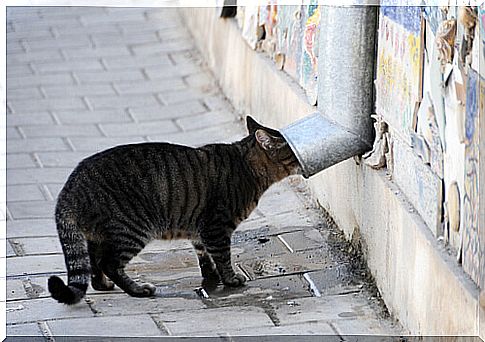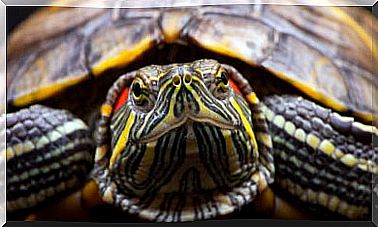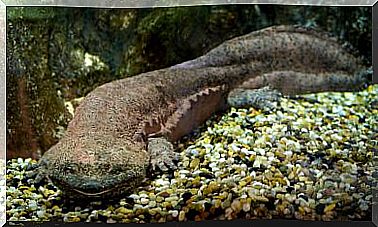How To Protect Your Cat Against Domestic Poisons

Most of the feline diseases are due to poisonings that occur inside the home. Knowing the potential poisons, in addition to adopting a series of preventive measures, is essential when protecting your cat.
Typically, domestic cats are exposed to a host of risks that owners cannot address. Many of these animals spend long hours outside the family environment, so they are susceptible to being beaten, poisoned or urban vandalism.
However, in the home itself there are also a large number of threats that normally go unnoticed, which can be potential poisons in the domestic environment:
- Human drugs.
- Some human foods.
- Cleaning products and other chemicals.
- Cosmetic products.
- Ornamental indoor or garden plants.
- Insecticides, rodenticides and other types of poisons.
Preventive measures to protect your cat
- Maintain order and ensure difficult access. Medicines, chemicals, and in general those products that can cause harm to the animal, should be stored in inconspicuous places. Cats tend to open doors, crawl into closets, and inspect all kinds of corners, so it is wise to use secure locking systems.

- Know the harmful foods to avoid possible gastrointestinal disorders. Raw meat and fish can contain harmful microorganisms, in addition to posing a risk due to the possible presence of bones and bones. Sugary products, some fruits with seeds, and even milk due to the absence of the lactase enzyme in adult cats, are responsible for much of the vomiting, diarrhea and other ailments.
- Avoid plant species incompatible with felines . Many of the indoor and garden plants contain toxic substances that can cause mild dermatitis to cardiorespiratory arrest. An example is tulips, whose impact on the health of these animals is so serious that the Food and Drug Administration (FDA) itself warned of the kidney ailments it causes instantly.
- Reduce or avoid the use of poisons. Although they are not very frequent, in rural areas they can be common. Rodenticides in even insecticides should be applied in small doses, when it is essential and there is total assurance that the animal will not come into contact with them. However, the best option is to use alternative methods (traps) or limit their use to those dates when the house is unoccupied.
Ensuring these measures is essential to avoid possible feline poisoning. However, as mentioned above, most of the problems occur when the animal is out of the domestic environment.

Symptoms of poison in cats
If after one of its escapes the animal shows a different behavior than usual, it may be a reflection of possible food poisoning. There are several symptoms that can help owners identify these ailments:
- Increased vomiting and diarrhea. Vomiting in cats is ‘frequent’ due to their tendency to expel so-called hairballs. However, when a higher number of these occurs, it can be suspected that the animal has ingested something inappropriate.
- Allergic skin reactions. The reddening of the skin, the appearance of itching, or the presence of mucous membranes that are not very moist and with pale colors, can act as objective physical indicators.
- Cardiorespiratory problems. Sneezing, shortness of breath and any type of alteration in the habitual heart rhythm.
- Neurological symptoms. Loss of balance, cramps, and listless behaviors indicate serious ailments.
In general, the most objective and effective measure to protect your cat is prevention. These animals enjoy an independence that, linked to their curiosity and their ability to reach all kinds of corners, makes them pets that are highly exposed to risk.









